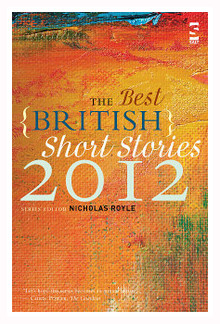
Photograph by Stef Edwards
There was a bit of a Guardian-inspired Twitter flurry, recently, after writer Helen Oyeyemi recommended the Write or Die app in the newspaper’s Out in Paperback Q&A. Apparently, in its kamikaze mode, the app starts deleting your work after 45 seconds’ inactivity. Now, I’ll admit there have been times when I might have benefited from having someone stand behind me with a loaded gun, although it’s amazing how a deadline will have much the same effect. But generally I’m suspicious of these aids to writing. Novelist and short story writer Conrad Williams recommended the Pomodoro Technique to me, as a way of eliminating online distractions and getting on with one’s writing, but I could never quite see how a tomato-shaped timer (3D or virtual) was any better than a combination of willpower and the ability to tell the time (not that I’m saying I can muster the willpower to ignore online distractions, or even tell the time, half the time). At least the Pomodoro Technique was harmless, whereas I feel bound to wonder if Write or Die might simply be helping to fill the world with more of what it doesn’t need, because it already has far too much of it – Pointless Writing.
You know what Pointless Writing is. You’ll have read so much of it you’ll have become inured to it. You anticipate it now, almost look forward to it, like crisps or Big Brother. It’s rubbish and it’s bad for you. It fills you up and makes you feel sick. It gets fiction a bad name, particularly short fiction. People say they don’t like short stories, so you try to get them to read some, and they do, but they pick up the wrong book or go on to the wrong site or download the wrong app. By whatever means they get hold of some Pointless Writing and they can’t really see the point of it and they feel they were right all along, that short stories are a waste of time. Or, they think, this is all right. This passes the time. And so the mediocre becomes acceptable.
It’s never been easier to publish short stories. I don’t mean with corporate publishers. You’re not going to sell your debut collection to Random House or Penguin, or Serpent’s Tail for that matter (whereas once you might well have done). But you might find it is taken up by one of the adventurous independents, or you might persuade your mate to do it, or you might do it yourself. On the one hand this is great because it means good short story writers who might once have struggled to find a publisher should now be able to do so. But on the other hand, it could mean the bar has been lowered. It would be an exaggeration to say that anyone can get published now, but there’s a lot of stuff out there that is never going to set the world alight. There are writers being published too early. Once – ten, fifteen, twenty years ago – you served your apprencticeship by collecting rejection slips and maybe getting lucky with the odd magazine acceptance. Now you can have two or three collections of frankly uneven material that doesn’t do you any favours.
And all the while, all around you, a million voices are exhorting you to write. Write every day. Write a thousand words a day. Write something in the next 45 seconds or your app will start deleting what you have already written.
You know what? You don’t have to write every day, or even in the next 45 seconds. Write when you have something to say, when you have a story to tell and an engaging way of telling it. Don’t write for the sake of writing. Don’t write because you want to be a writer. Be a writer because you write, and write because you have something to say and writing seems the best way to say it.
~

Nicholas Royle is the editor of The Best British Short Stories 2012, published by SALT.


Why do we give control of our willpower to electronic devices? Timers on phones, online diaries. But I will admit to advising students of the timer method when they are stuck or say they have writers’ block and also as a way of breaking out of online time-wasting addictions. A kitchen timer is wonderfully manual and usually noisy – miles away from the corporate controls on our time created by online methods of gaining our interest.
I really like this post, thanks, Nicholas, it makes a lot of sense to me.
Never used ‘Write or Die’ or the Pomodoro technique. I usually have the very real timer of my daughter’s nursery hours or her afternoon nap snapping at my heels to motivate me to get writing. One piece of advice nicked from Chuck Palahniuk has served me well though, whenever I don’t feel like sitting down to write. He recommends sticking on the washing machine and sitting down to write at least until the cycle finishes. However hard getting going might be, by the time the machine spins down I’m usually so wrapped up in what I’m doing that getting up to hang the stuff out has to wait for my cycle to finish.